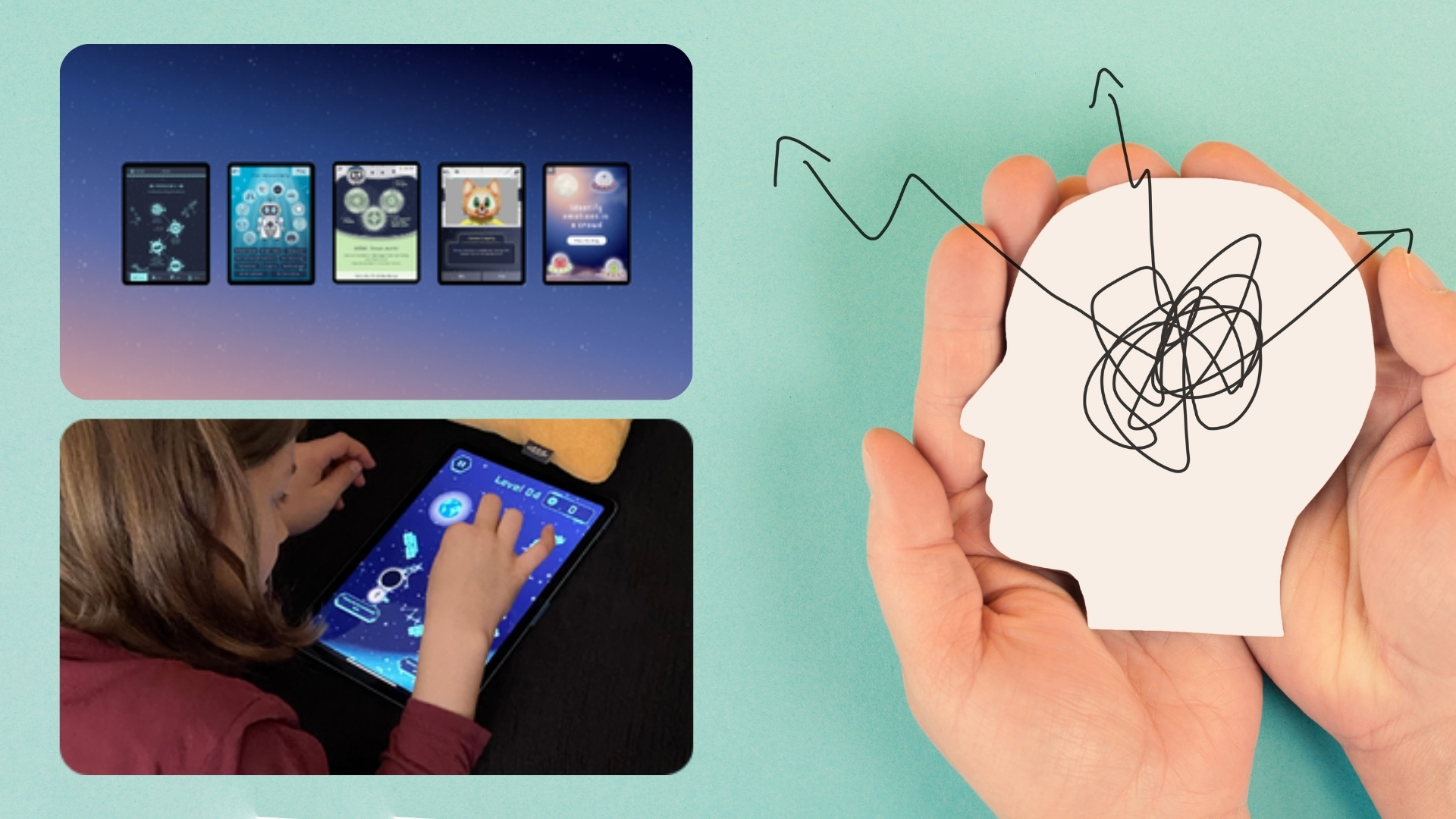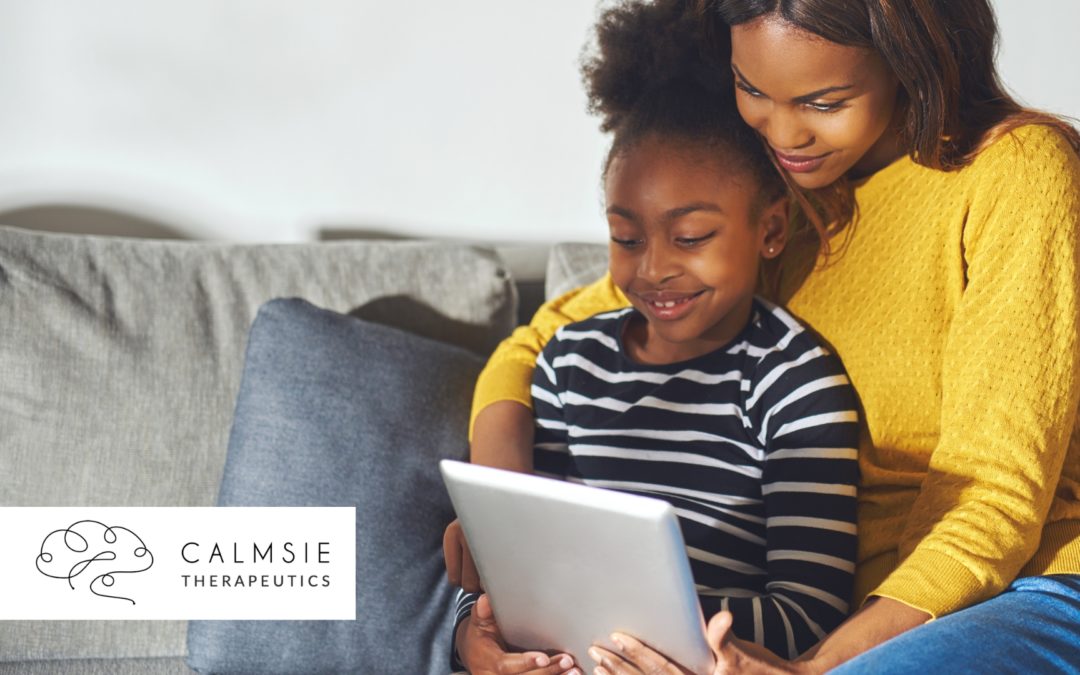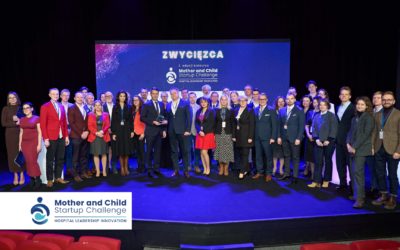In today’s world, where the mental health of children is becoming an increasingly bigger challenge, Calmsie steps up to address these issues by offering innovative solutions in the field of therapy for child psychiatric disorders. I invite you to get to know the conversation with Calmsie’s CEO and founder, Marcin Waryszak, who shared more about the behind-the-scenes of the project.
Where did the idea for creating Calmsie come from?
MW: The idea for creating Calmsie was born in response to visible gaps in the child healthcare system. There is still much to be done in the area of child psychiatry, and the gaps in the system require an innovative approach, not just increased budgets. The beginnings were tied to hours-long conversations with experts, market research, and gathering feedback from parents, children, psychiatrists, and psychotherapists. This allowed us to shape a vision and define a strategy for action. Thanks to this work, we were able to create a tool that brings a fresh perspective to child psychiatry and can truly change the way we help children with emotional problems.

Why is caring for children’s mental health issues so important now?
MW: In the United States alone, there are 15 suicide attempts by children under the age of 12 every day. This dramatic reality requires immediate intervention. Our mission within the Calmsie project is not limited to creating innovative therapeutic solutions. We also engage in activities to increase public awareness about mental health. We continuously strive to change the situation in the area of child healthcare. Our actions also include advisory work in public institutions, such as the Round Table at the Ministry of Health. Calmsie’s co-founder, Dr. Brian E. Wallace, was an expert on child mental health and a speaker during the 78th General Assembly of the United Nations. Our efforts have strengthened the message about the need to change the approach to healthcare for the youngest.
What is „Mission Amygdala” and how does it support children in learning about emotions and effective stress management strategies?
MW: Calmsie introduced Mission Amygdala – a digital platform supporting children in the fight against depression and anxiety disorders. The app transports young patients into the world of mobile games, where they take on the role of heroes saving the galaxy. Children are faced with missions that help them overcome various emotional challenges. They then interactively communicate with General Empathy – a videobot, to learn how to apply knowledge in everyday life.
How do gaming experiences increase children’s engagement in the Calmsie educational program?
MW: They are crucial for the success of the Calmsie program. Gaming experiences make therapy more engaging and accessible for children. Our games mimic typical interactions, finger movement patterns, and the intuitiveness of controls known from popular games, allowing users to easily get involved in the therapeutic process. Working with world experts in the field of gaming, we have created games that are not only attractive but also effectively convey therapeutic content.
How do you utilize artificial intelligence for this?
MW: The basis of our games is the know-how in the field of artificial intelligence, based on years of R&D research. Additionally, we use proprietary medical content, which is based on decades of clinical practice under the supervision of professors of psychiatry. The use of artificial intelligence allows for real-time interaction between the child and avatar videobots, increasing effectiveness and personalizing therapy support.

Can virtual solutions fully replace contact with a therapist?
MW: Virtual solutions can be a valuable supplement to traditional therapy, but contact with a specialist remains key for deeper understanding and empathy towards the patient. Face-to-face interaction allows the therapist to better read non-verbal signals and tailor therapy to the individual needs of the patient. The ideal solution may be the integration of both approaches, utilizing the strengths of both forms for optimal results.
What other innovations in the field of child mental health are you currently working on?
MW: One of our main areas of research and development is working on revolutionary digital biomarker technology. These innovative tools can significantly streamline the diagnostic process, monitor therapy progress, and adjust treatment to individual patient needs. By applying advanced technologies, such as data analysis, artificial intelligence, and haptic technology, we aim to create tools that are not only effective but also easy to use and accessible to a wide range of users. We are working on this among others with entities associated with Cornell and Stanford Universities.
Calmsie was awarded as the global product of the year at the Med Tech World congress in Malta and was identified by Oracle as one of the best pediatric startups in the early stage of development worldwide, confirming the effectiveness and innovation of our approach. The company sees the future of medicine in Poland and around the world as increasingly integrated with modern technologies. Implementing innovations, such as telemedicine or artificial intelligence, can bring numerous benefits, including improving the accessibility of healthcare and increasing the efficiency of diagnosis and treatment. Currently, Calmsie focuses on intensive development and expansion into new markets. This includes conducting pilot projects in Poland and the United States and analyzing opportunities for expansion in Asia, Australia, and the Scandinavian countries.
–
I invite you to continue following „Health Tech of The Week,” where we will explore innovations and solutions that are constantly transforming the world of medicine and healthcare, creating new treatment possibilities and improving the quality of life for patients worldwide.
If you are leading an innovative project in the field of new technologies and medicine or want to recommend an interesting solution, contact us at: [email protected].
Why do we focus on balance? How mental health is gaining value
In the "Health Tech of The Week" initiative, I discuss health comprehensively, emphasizing the importance of a holistic approach to individuals....
Cognitive Behavioral Therapy from Home Instead of the Office
They’ve moved therapists and patients in front of a computer screen, increasing access to therapy and mental health support—without losing its...
Technology Guarding the Lives of Newborns: Polish Startup Wins the Mother and Child Startup Challenge 2024
On November 27, 2024, Warsaw's Capitol Theatre hosted the grand finale of the third edition of the Mother and Child Startup Challenge—one of the...




